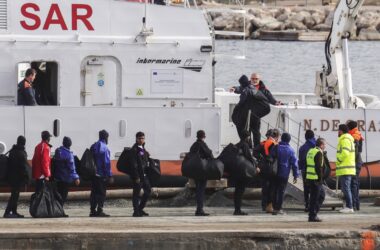Migration pressure along the Balkan route remains a serious issue, with migrant ghettos emerging in places like Serbia. Bosnia-Herzegovina, at the heart of this route, struggles to cope with the relentless influx of migrants.
Over 24,000 migrants have already been registered in the country this year, showing little change from last year. Asylum applications are common, but many migrants simply use the system as a way to stay temporarily before heading to the EU.
The Balkan route remains a key passage for migrants from countries like Syria, Afghanistan, and Iraq, entering Bosnia from Serbia. Despite the establishment of camps, with around 1,100 migrants currently sheltered, the situation fluctuates. Sarajevo Canton houses the largest concentration, with many migrants between the ages of 19 and 35. However, the future doesn’t seem promising as authorities predict ongoing migration flows.
Though Bosnia’s asylum process is simple, with biometric registration and a 15-day period for formal requests, many migrants abuse the system, using the time to rest in camps and prepare for their journey to the EU. Conflicts among migrants, usually over territory, occur but don’t pose direct risks to locals, thanks to swift intervention from authorities.
In Serbia, tensions have reached a boiling point. Migrants have occupied homes and flooded public spaces in northern regions like Vojvodina. Entire areas have become migrant ghettos, with human traffickers capitalizing on the chaos, demanding large sums to smuggle migrants across borders—sometimes with armed assistance. A shooting incident in Subotica in 2022 left fatalities, further heightening fear among locals, who were also subjected to nightly gunfire.
In response, Serbian authorities launched a crackdown, confiscating weapons and dismantling illegal camps. But with locals fearing a return of the migrants once pressure eases, the country remains in a precarious situation, struggling to balance security and public concern.




